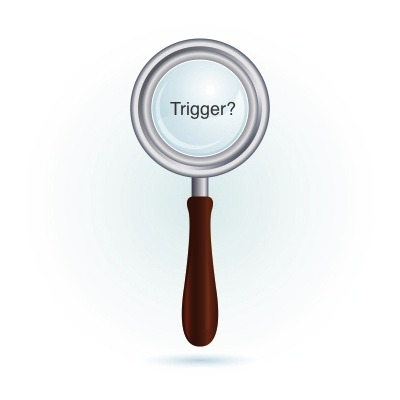A Powerful Depression Coping Principle: Know Thyself

Possibly the most important depression coping principle is "Know Thyself." You absolutely must know what triggers your depression and what helps you to relieve it. As a person with depression, knowing myself is essential to my continued well-being, and ignoring the "Know Thyself" depression coping principle could lead to the worst end
Highly Sensitive People Need to Embrace This Depression Coping Principle
Like most of you, I am a very sensitive person, sensitive to all types of influence that can trigger a depressive episode. My compassion and sympathies run deep and it doesn’t take much for them to teeter one way or the other.
That’s where knowing thyself comes into play.
As part of cognitive behavioral therapy (CBT) for depression, we are taught to find out what our depression triggers are and to try to avoid them. If we can’t avoid them, we must try to minimize our exposure to them. If we can’t minimize the exposure, we learn methods to cope with them.
The Know Thyself Depression Coping Principle In Action
Bad news abounds in this day-and-age; natural disasters, chemical weapons, even your garden-variety neighborhood home invasions. The tragedy and violence reported in the daily news is one of my triggers.
If you’re thinking that’s a pretty big trigger, you’d be right. The news is everywhere!
 As part of my CBT, I had to be more specific, which is kind of horrible when you think about it. Do forest fires trigger an episode? No. Does domestic violence trigger an episode? No. Beached whales covered in oil? No. And so on. I felt horrible listing the things that did not represent a trigger because I felt like the Tin Man without a heart.
As part of my CBT, I had to be more specific, which is kind of horrible when you think about it. Do forest fires trigger an episode? No. Does domestic violence trigger an episode? No. Beached whales covered in oil? No. And so on. I felt horrible listing the things that did not represent a trigger because I felt like the Tin Man without a heart.
Still, to preserve my own well-being, I had to put it all under a magnifying glass and list, specifically, what kind of bad news triggered a downward spiral. Which meant I had to immerse myself in the bad stuff.
Examples of My Depression Triggers
I’ll give you an example.
For me, the worst of the worst involves tragedy and violence pertaining to children. While I am drawn by my compassion to listen to the news reports involving children, I know that I simply should not do so. As a particularly nasty depression trigger, and pursuant to my CBT, I must avoid hearing about the event. Which is a little ridiculous because it isn’t until I’ve heard about it that I realize I need to avoid it. If what I’ve been exposed to already has the potential to bring me down, I use my learned coping skills to combat it.
I try to do this with as many triggers as I can (and have) identified. This is a proactive technique – something that should be done while on a upswing . . . so that you can maintain the upswing for as long as possible.
‘Know thyself’. As far as I’m concerned, knowing yourself and what your triggers are, can be the most effective method for coping with depression.
Magnifying glass image by digitalart, courtesy of freedigitalphotos.net
APA Reference
Scott, L.
(2013, September 1). A Powerful Depression Coping Principle: Know Thyself, HealthyPlace. Retrieved
on 2026, February 28 from https://www.healthyplace.com/blogs/copingwithdepression/2013/09/know-thyself-a-coping-with-depression-maxim
Author: Liana M. Scott
I have similar triggers, except instead of children mine is family deaths. I do my level best to minimize the effect. My cat Belle is a wonderful distraction and comfort to me.
